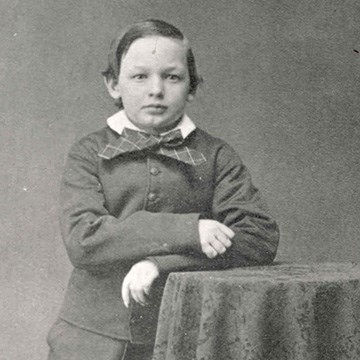Burlingame Previews New Work on Lincoln and Colonization
- Lincoln Group News Archive

- Feb 20, 2021
- 3 min read
John O'Brien
Washington D.C.
February 15, 2021
Author Speaks at Lincoln Birthday Celebration

Dr. Michael Burlingame, distinguished professor at the University of Illinois at Springfield, spoke to the February 9 Lincoln Birthday combined meeting with the Lincoln Group of the District of Columbia and the D.C. Civil War Round Table. In past years, this has been a celebratory dinner at Patton Hall in Fort Myer, Arlington, VA. The Zoom meeting format allows participants to enjoy more interaction with the speaker even if the socializing suffers a bit. More than 100 members and guests attended the presentation.
Burlingame spoke from new research he will publish this summer on President Lincoln's meeting with a "Delegation of Colored Gentlemen" at the White House on August 14, 1862. This event has long troubled scholars because of the president's demeaning and dismissive comments concerning the aspirations of African Americans. He made no effort to determine their views of the future of their race in America. Rather, Lincoln simply informed them that money had been appropriated by Congress for the purpose of aiding the colonization in some other country of people of African descent. After a few insulting comments about how the races can never co-exist and how the Black race was the cause of the war, the President asked these community leaders to support colonization. He also wanted them to determine the details of where and how colonization would be accomplished. He left them with a charge to come up with an appropriate colonization plan and report back to him when they finished. There was a reporter in the meeting and a full account was published in the major newspapers the following day.
Never before had Lincoln expressed such singularly disparaging opinions on race relations. This meeting has troubled scholars ever since who have tried to construct Lincoln's actual opinions on people of African descent and race relations. Lincoln had long been associated with colonization. The movement was founded by his political role model, Henry Clay. But it had been portrayed as a voluntary option for formerly enslaved people to get assistance to voluntarily relocate to a different land where they would have greater opportunities among thier equals. Did Lincoln, in fact, hold a belief common among whites in both the North and South that it would be impossible for whites and blacks to live together peacefully in a United States without slavery?
There were several small scale efforts to create colonies away from the United States. None of these ever showed any promise for success in attracting nor sustaining large populations. Lincoln never organized an effort that approached the scale necessary to export more than a fraction of the 4 million people of African descent in America. There is no evidence that Lincoln ever seriously considered a plan that could accommodate large numbers of emigrants. Congress had authorized $700,0000 for the effort and only $37,000 was ever spent.
Lincoln critics have seized on the meeting with the "Colored Gentlemen" and the colonization plan to argue that Lincoln was among the worst racists in the country who cared nothing for the welfare of Blacks. Burlingame, however, concludes that the absence of any meaningful plan or follow-through and the timing of the meeting strongly suggests something else. This was just a week before Lincoln's letter to Horace Greeley raised the possibility of his making emancipation a part of his plan to save the Union. The Greeley letter itself is often portrayed as ambivalent regarding race. But rather than cavalier, Burlingame thinks it most likely that this was part of a multi-pronged communication plan Lincoln used to prepare the nation for the announcement of the Emancipation Proclamation. Though there is no direct evidence of this, but in full consideration of the circumstances this is the most likely explanation. The meeting with the "Colored Gentlemen" was a ploy to allay the fears of racist northern voters and reduce the resistance to emancipation. Lincoln was already committed to emancipation, quickly followed by a route to citizenship via military service.



Comments